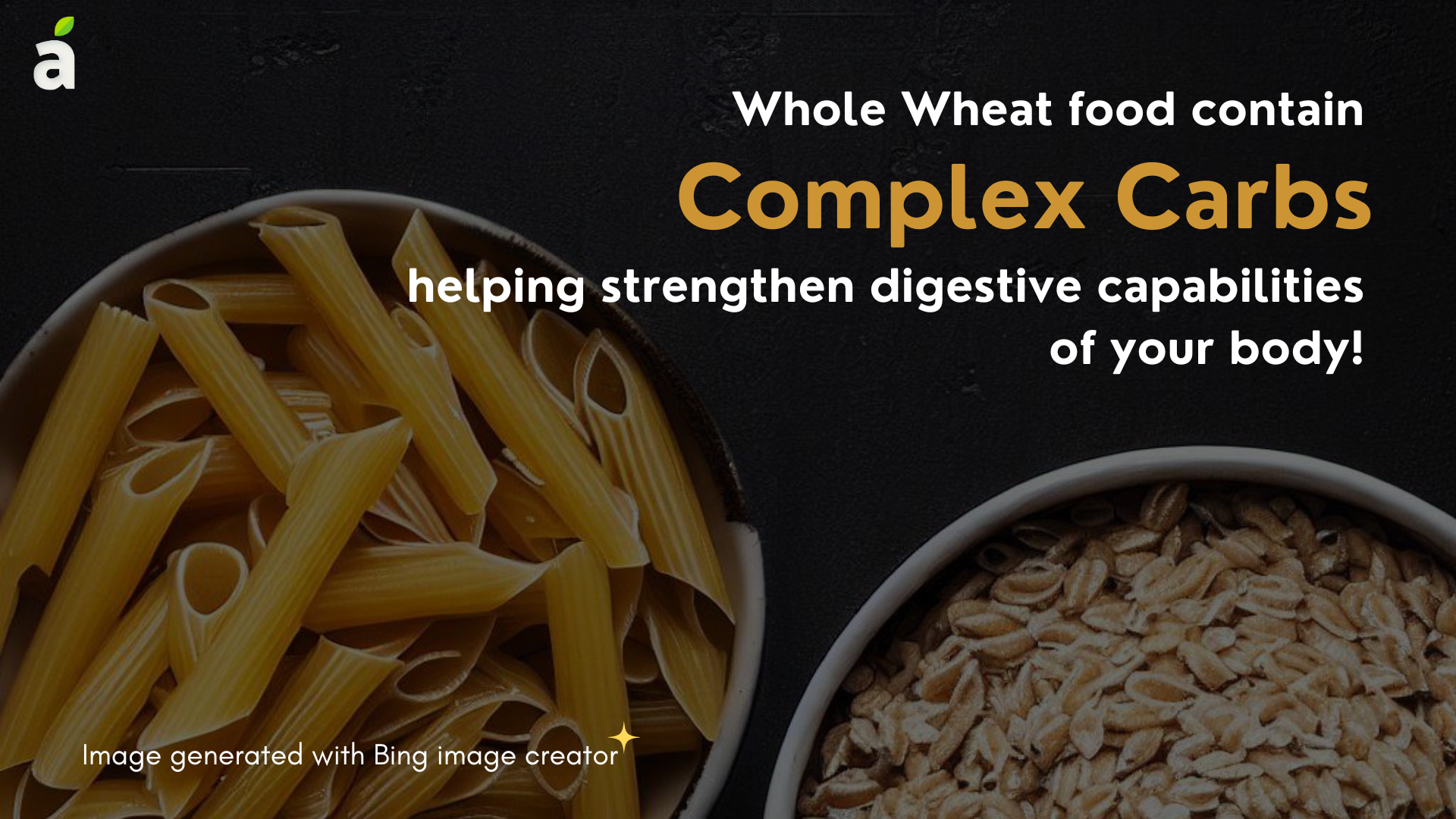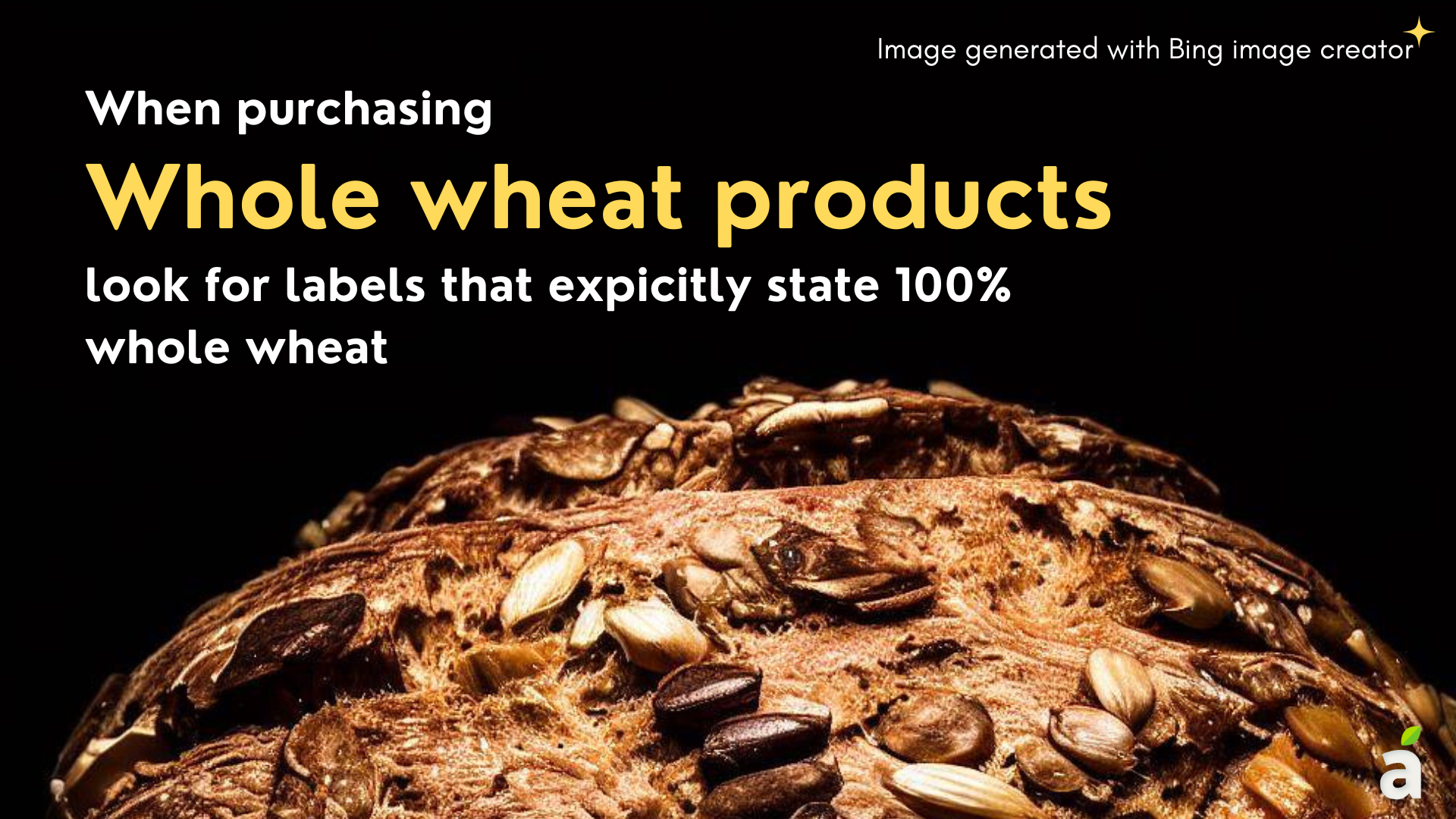Published Date January 24, 2003
Whole wheat bread-wagon
By Naurin Ansari
4 min read
Last update date: January 24, 2003

Whole grains or instead whole wheat have gained immense popularity in recent years. It provides numerous health benefits and is a staple ingredient in Indian cuisine.
Indian cuisine is incomplete without wheat or whole wheat being used in it in some other form. In this blog post, we will explore its impact on overall health and the wide range of delicious possibilities it offers.
From whole wheat oats and whole wheat oatmeal to whole wheat pasta, in every iteration, the ingredient is a healthy addition. We shall explore the delightful variations and inspire you to embrace the goodness of whole wheat in your daily routine.
Is whole wheat healthy?
Whole wheat is a rich source of essential nutrients, making it a valuable addition to a balanced diet. Unlike refined grains, whole wheat retains its bran, germ, and endosperm, which provides a wealth of vitamins, minerals, and dietary fibre. These components work together to support various aspects of health, including digestion, heart health, weight management, and diabetes prevention.
The fibre content in whole wheat aids in digestion by promoting regular bowel movements and preventing constipation. It also contributes to a feeling of fullness, which can aid in weight management by reducing overeating and snacking between meals.
Additionally, the high fibre content of whole wheat can be associated with a reduced risk of developing chronic conditions such as heart disease, stroke, and certain types of cancer.
Whole wheat is also a valuable source of important nutrients, including B vitamins, magnesium, and iron. B vitamins play a vital role in energy production, brain function, and the formation of red blood cells. Magnesium supports bone health, muscle function, and the regulation of blood sugar levels. Iron is essential for transporting oxygen throughout the body and preventing anaemia.
Culinary Delights with Whole Wheat
Incorporating whole wheat into your daily meals can be both delicious and satisfying. Let's explore some enticing options that highlight the culinary versatility of this remarkable grain.
- Whole Wheat Oats and Whole Wheat Oatmeal: Start your day with a wholesome bowl of wheat oats or whole wheat oatmeal. These fibre-rich breakfast options provide sustained energy and keep you feeling full for longer. Customize your bowl with a variety of toppings such as fresh fruits, nuts, seeds, or a drizzle of honey for a nutritious and flavorful start to your morning.
- Whole Wheat Pasta: Swap out traditional refined pasta with whole wheat pasta to elevate the nutritional value of your favourite pasta dishes. Whole wheat pasta offers a satisfying texture and a nutty flavour profile. Pair it with a vibrant tomato sauce, sautéed vegetables, or lean protein for a hearty and wholesome meal.
- Wheat Waffles: Treat yourself to a delightful brunch or breakfast by preparing wheat waffles. Incorporating whole wheat flour into the batter adds a nutritious twist to this classic indulgence. Serve them with a dollop of Greek yogurt, fresh berries, and a drizzle of maple syrup for a balanced and delectable meal.
- Whole wheat cinnamon breads: It is a delightful and wholesome treat that combines the nutritional benefits of whole wheat with the aromatic flavours of cinnamon. This scrumptious bread satisfies your taste buds and provides a nourishing option for breakfast or as a snack throughout the day. Indulge in the comforting aroma of cinnamon and the goodness of whole wheat in every bite.
- Whole wheat muffins: They are a delightful and nutritious twist on the classic muffin recipe. Packed with the goodness of whole wheat flour, these muffins offer a heartier texture and a boost of essential nutrients. Whether enjoyed for breakfast, as a snack or as a treat, whole wheat muffins are a satisfying and guilt-free choice. These wholesome treats are sure to become a favourite in your kitchen.
Tips for Choosing and Incorporating Whole Wheat
There must have been times when you would have questioned, is whole wheat bread healthy or is a multigrain bread healthy?
Yes, whole wheat bread is generally considered a healthy choice. It offers several health benefits compared to refined white bread, which has undergone more processing and has fewer nutrients. Whole wheat bread is made from whole grains that contain bran, germ, and endosperm, providing a rich source of fibre, vitamins, minerals, and antioxidants.
When purchasing whole wheat products, look for labels that explicitly state "100% whole wheat" or "whole grain" to ensure you are getting the full nutritional benefits. Opting for organic whole wheat products can help minimize exposure to pesticides and genetically modified organisms (GMOs).
To incorporate whole wheat into your meals, experiment with recipes that call for whole wheat flour, such as bread, muffins, and pancakes. You can also gradually mix whole wheat flour with all-purpose flour in recipes to ease the transition and achieve a balance of flavours and textures.
Takeaway
Whole wheat is a nutritional powerhouse that offers a wide array of health benefits and culinary possibilities. It is a versatile grain that can be incorporated into various dishes, ranging from hearty bread to wholesome muffins. Whole wheat is rich in fibre, vitamins, minerals, and antioxidants, making it a valuable addition to a balanced diet.
With its abundant nutrients, fibre-rich composition, and ability to promote overall health and well-being, whole wheat is a choice worth embracing. So, why not explore the world of whole wheat and discover the joys of nourishing your body with this exceptional grain? Start incorporating whole wheat into your diet today and reap the benefits of a healthier, more satisfying lifestyle.
References
- https://www.lybrate.com/topic/oats-vs-wheat/084618292aaf518c970746b75f6050dd
- https://www.everydayhealth.com/diet-nutrition/diet/oatmeal-benefits-risks-recipes-more/
- https://www.hsph.harvard.edu/nutritionsource/what-should-you-eat/whole-grains/#:~:text=Eating%20whole%20instead%20of%20refined,%2C%20triglycerides%2C%20and%20insulin%20levels.&text=Replacing%20refined%20grains%20with%20whole,reduce%20type%202%20diabetes%20risk.
- https://www.floridahealth.gov/newsroom/2018/09/092118-whole-grains-Article.html#:~:text=Buy%20whole%2Dgrain%20products%20that,storage%20guidelines%20on%20the%20package.
- https://www.mayoclinic.org/healthy-lifestyle/nutrition-and-healthy-eating/in-depth/whole-grains/art-20047826
- https://www.simplyfresh.info/10-tips-for-purchasing-and-storing-whole-grain-foods/
Choose Healthy With Us.
Know the real truth about your food. Stay informed and healthy, for free.

Download the App Now
Certified nutritionists trust our food recommendations. Safe to say, so can you :)











